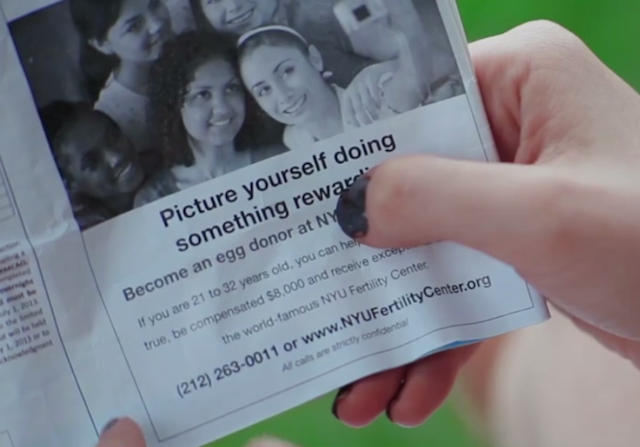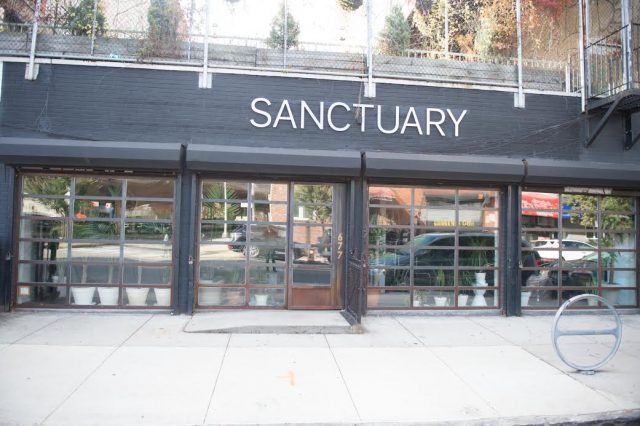
So you’ve got a bachelor’s degree, but you can’t get a job. Now what? As young and creative as this city is, graduate education continues to be the professional leg-up that often makes the difference between landing or missing out on a great job.
But education costs in the city remain at a stupid high. The Columbia Journalism School, for example, is home to one of the most sought-after master’s degrees in the world but costs $92,933 a year to attend. In 2011, Cuomo signed a piece of legislation that allowed typically low-cost CUNY and SUNY Institutions to increase its tuition by $250 annually between 2016 and 2021. And whether or not student loan forgiveness will be kind to your breed after 10 years of schlepping remains to be seen.
Saving for grad school is definitely going to take more than scaling back your daily coffee addiction and subway fare. But if, like me, you’re not keen on taking up sex work to pay for college — a seriously viable option too, fwiw — read up on a few other clever ways to save up for grad school that don’t involve taking your clothes off. These remote work solutions might just get you the master’s you’ve been waiting for.

You, too, can sell your comedy stunts for money online
“Freelancer” seems to be as broad a term as it can get for Fiverr, a platform for freelancers to sell their services for $5 and up. And I mean any service: One of the site’s top sellers are three guys from India sing “Happy Birthday” while weeping into a river, for $5 per song. (Their biggest competitor in the birthday song market might be the guy who sings happy birthday in tin foil and a thong for $10 and up.)
Fiverr also provides myriad services for professionals, like an eight-week schedule for creating marketable online content, and career advice for busy bees everywhere. Frivolous as their concept may seem, the website has helped the financially wandering freelancer earn an income off their skill set. Some Fiverr aficionados have even built enough of a clientele to earn six figures a year.
Closed captioning is brought to you in part by… you
Rev, a San Francisco-born venture capitalist start-up, hires freelancers to transcribe, translate and caption both written and audio content from the comforts of their homes. Freelancers from futons all over the globe decode market research, translate immigration documents and transcribe Jim Gaffigan’s stand-up for the hearing impaired (or for your mother, who doesn’t quite get his set about donuts.)
Transcriptionists can earn up to $1,495 a month for their work per 40-60 cent audio hour. Doing captions can earn you slightly more. Translators earn the least per audio hour, but if you translate like the wind at 500 words per day for a whole month, it could earn you up to $1,085.
Granted, transcription of any kind isn’t the most exciting task; it means listening, over and over again, and in the case of meeting minutes you might find yourself having to pin down jargon like “quarterly dividends” while rewinding twenty seconds to make sure it was Martha who asked for another cup of coffee, not Karen. But you can take as much or as little work as you wish, choose your own projects, and you get paid weekly. Weekly, I said!
____________

You can’t sell your soul, but you can sure as hell sell your eggs
Sorry, dudes, this one’s just for women. It’s a complicated issue that your own mom might not approve of, but “egg mothers” in New York City earn a hefty $8,000 – $10,000 per egg donation cycle.
Michela Marsh, 24, who earned $24,000 over a few donation cycles, and filmmaker Sonja O’Hara, 29, who earned nearly $20,000 and put into the production of a meta film project called Ovum (a movie about an actress who sells her eggs to make a movie). Both women told us they reaped the benefits of their labor (or, er, not even): Marsh spent her earnings on first and last month’s rent. O’Hara now runs her production company, Boheme Productions, out of an office on Bedford Avenue.
Donating your eggs isn’t all shits and giggles — it’s a lot more trips and needles — so read up on We Are Egg Donors for testimonials before you decide.
Speak up, readers: What’s the weirdest thing you’ve ever done to save for grad school? Let us know in the comments section!
Leave a Reply



